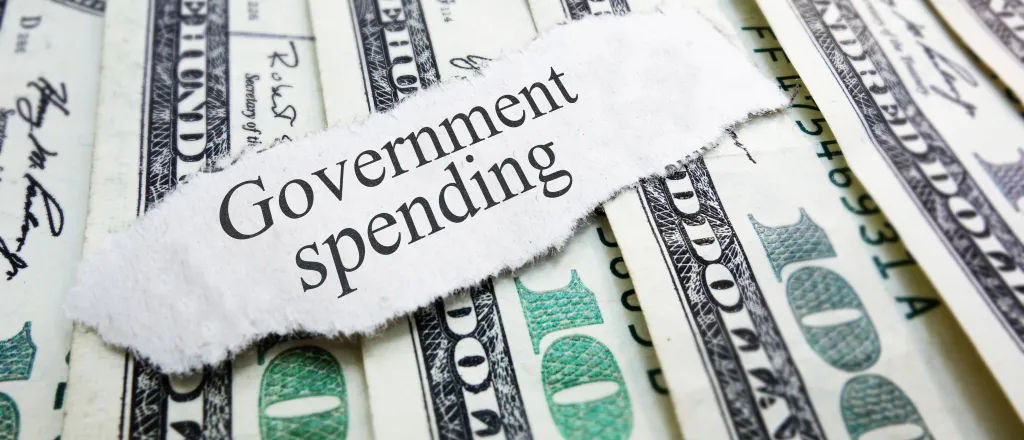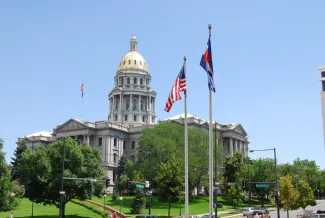
State lawmakers prep Coloradans ahead of special session
© zimmytws - iStock-511889079
Ahead of a special legislative session to rebalance Colorado’s budget, Democratic lawmakers are briefing their constituents on the cause of the fiscal challenge and the policy solutions they will debate later this week.
“That (federal) tax law went right into our budget and shot a $1.2 billion hole in what was a balanced budget,” Representative Bob Marshall, a Highlands Ranch Democrat, told a room of about 80 people in Lone Tree Monday night.
Marshall said his events typically draw anywhere from a handful to a few dozen attendees. This time, the seats were full and people stood on the perimeter of the room to listen to his remarks.

It was an already-planned town hall, but Marshall coupled it with a series of events across the state hosted by the Colorado Democratic Party to explain the fallout of the recent Republican tax and spending cut bill to Coloradans. The congressional bill, backed by President Donald Trump, is also known as H.R. 1, or the One Big Beautiful Bill Act.
“We have such a unique budget situation here in the state and people need to know the ramifications in these big federal actions that will take effect for years,” Shad Murib, the party chair, said after the town hall.
State lawmakers are set to return to the Capitol Thursday to begin a special session to address that hole in the state budget, which could be around $800 million due to that $1.2 billion revenue loss created by the federal law, which passed in July.
I'm usually very bipartisan, but it's very irritating being called profligate when we had a balanced budget, and meanwhile, the federal government has just put us in hock to the highest level since World War II.
To do so, Governor Jared Polis suggested a handful of policy tweaks, including using up to $300 million in the state’s budget reserve, decoupling the state from the federal qualified business income pass-through exemption for business owners, allowing large taxpayers like insurance companies to prepay future taxes, expanding the list of countries Coloradans are prohibited from using as tax shields, and getting rid of some tax breaks for insurance companies. Additionally, the Legislature will likely need to find millions of dollars to cut in existing programs.
Colorado Democrats have played offense since Polis called the session by blaming Republican members of Congress for the budgetary shortcomings. All four Republican members of Colorado’s congressional delegation voted in favor of the bill. All four Democrats voted against it.

© JJ Gouin - iStock-1642293566
The reforms of the federal tax code, which Colorado is tied to through a “rolling conformity” structure, will result in a loss of $950 million in state corporate income tax and $460 million in individual income taxes, according to the governor’s office. Those are the immediate risks for the current fiscal year, as major changes to Medicaid and food assistance programs will take place in later years.
“I’m usually very bipartisan, but it’s very irritating being called profligate when we had a balanced budget, and meanwhile, the federal government has just put us in hock to the highest level since World War II,” Marshall said.
Colorado Republican lawmakers have blamed increased spending under a Democratic majority for the deficit created by the federal bill.
“It is not an overspending issue, because we cannot borrow and we cannot raise revenue because of (the Taxpayer’s Bill of Rights). So we are spending to the TABOR cap, which is how much the voters have told us we can spend,” Marshall said.
TABOR is a constitutional amendment that sets a limit on how much revenue the state can keep and spend in a given year. It puts a limit on annual spending growth based on inflation and population growth.
Marshall said he will run two bills alongside Democratic Representative Yara Zokaie, including the one to add more countries to the list of tax havens Colorado will not recognize. The new additions could be Singapore, the Netherlands and Ireland. Marshall will also sponsor a bill to further decouple Colorado from the Foreign-Derived Intangible Income deduction.
Kathy Boyer, a Democrat in Marshall’s district, said she usually attends his town halls.
“It was news to me that our Colorado taxes are so heavily based on our federal taxable income, so that explains a lot as to why the federal bill will be so detrimental,” she said.
Emily Haigh lives in Denver but went to Marshall’s town hall to learn more about the financial impact of the federal law.
“I know this is Lauren Boebert’s district, and I don’t like her, and I wanted to hear what someone from the district had to say, even if he’s a Democrat,” she said. “It was informative to hear what he had to say about it, and I felt like it was good to hear from someone that cares.”

















